Faces of Open Government: Inese Voika
Rostros de gobierno abierto: Inese Voika
Inese Voika is a Member of the Parliament of Latvia (the Saeima). In this interview, Inese talks about the important role of parliament in open government, Latvia’s progress on lobbyingLobbying transparency allows the public to ensure that there is diversity of participation and contribution to public decision-making. Technical specifications: Policies and actions affecting lobbying... transparencyAccording to OGP’s Articles of Governance, transparency occurs when “government-held information (including on activities and decisions) is open, comprehensive, timely, freely available to the pub... More reform, how the Latvian parliament is working to become more accessible to citizens and more.
Why do you find it important that the Saeima (Latvian Parliament) is involved in open government and OGP commitments?
I consider OGP one of the most dynamic good governance and anti-corruption networks internationally. I have been part of the anti-corruption movement for more than twenty years through Transparency International as chair of Transparency Latvia and Board Member of Transparency International. So we have worked with the UN Convention, OECD, and other international organizations and instruments, and when OGP came to life in 2011, there was really an energyEnsuring universal access to sustainable, dependable, and affordable energy is critical to every aspect of prosperity. Increasing public oversight and transparency in the energy sector can help to ens... More. It is a club of the willing, made of governments and civil society who want to participate and exchange.
In my work, first as a civil society member and now as a parliamentarian, it’s been clear that partnerships are essential for making this work happen. And the Parliament is an instrumental part of all of this. We started working with the OGP contact point – the State Chancellery of Latvia – through a law on lobbying transparency. Sixty percent of the parliamentarians that joined the Saiema in 2018 are new members of the Parliament, including my faction. Many have a strong edge for transparency and good governance, so we used this drive to mobilise the Parliament to get involved.
Why is lobbying transparency particularly important at this point in time, and how is Latvia advancing in this policy area? Could you tell us about recent developments as well as Saeima’s leadership on the issue and the reasons behind it?
The law on lobbying transparency points to a very obvious gap in our anti-corruption policy. We had attempted to do this from the government’s side through a time period of several years in 2008-2015, but it ended without success. There have been several reasons for this. The timing was not right for this law, but since we have passed the law on whistleblowing, which was another pressing issue, these issues on the anti-corruption and governance agenda have started to become ripe.
For the law we are creating now, we don’t want to use the term “lobbying”, which is seen as an inherently corrupt activity by many Latvians. We will focus on advocacy transparency and transparency of interest representation instead, which broadens the aim of the law and highlights the positive action. We want to be careful to avoid creating rules that would restrict current advocacy efforts in Latvia, for example by creating too big of an administrative burden, especially to small organisations like patient health advocacy groups and others. We want to make what is already happening better – more accessible and more transparent. We want the representation of interests to become an irreplaceable part of Latvian democracy. Public officials in Latvia already have open calendars for public events, speeches and diplomatic meetings, but we’d like to also include these interest representation meetings, so we can also monitor our officials.
We have convinced several high officials who have expressed support for opening their calendars. The new elected City Council of Riga, including the new mayor, are working to open their calendars as early as spring 2021, even before we pass the law. It is a sign of zero tolerance towards corruption in our capital under the new coalition.
We publish the minutes of our working group, so that each step of our action can be followed.
As members of OGP, I think the word “partnership” really helps us focus on domestic partnerships as well. We had an excellent exchange with our Registrar of Enterprises that is already holding a dozen different registrars – including our beneficial ownership registrar, which is mandatory and publicly available. The head of the registrar is very willing to work with us to make the process more efficient by sharing registration information from existing databases to avoid bureaucratic burdens that many associations have warned us against. We’ll also talk with the government IT department to streamline and integrate data across the government websites to produce a track record for consultations held about a certain piece of legislationCreating and passing legislation is one of the most effective ways of ensuring open government reforms have long-lasting effects on government practices. Technical specifications: Act of creating or r... or decisions.
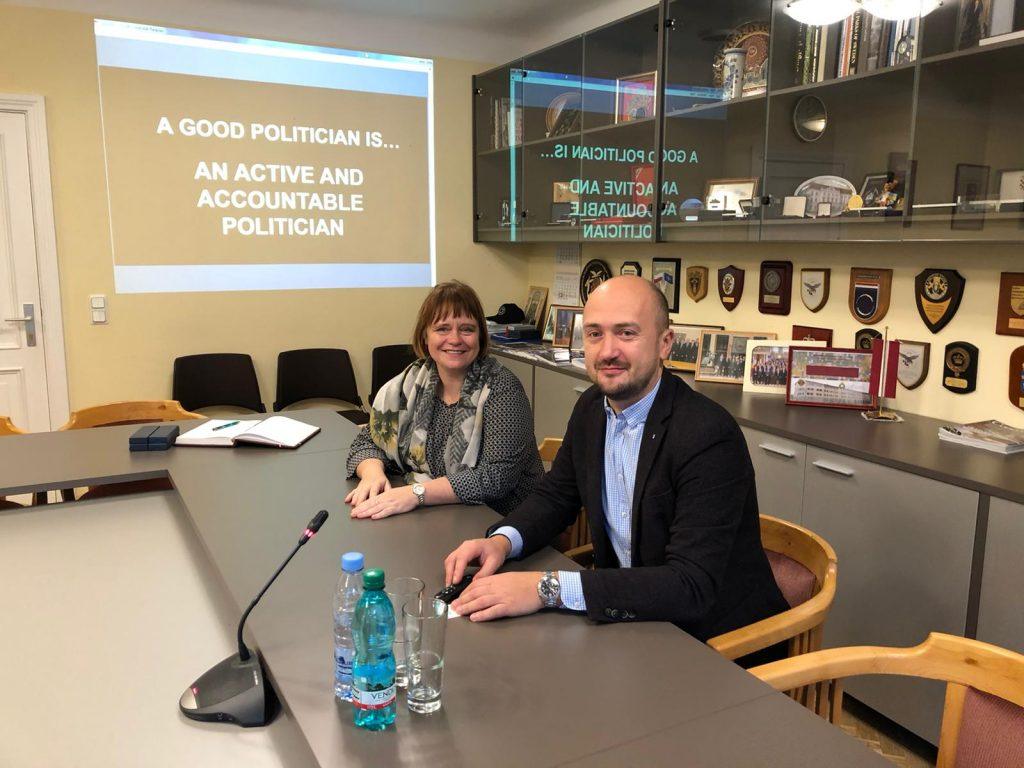
Inese meets with Sergejus Muravjovas from TI Lithuania to learn about Lithuania’s work on lobbying transparency reform. / Rīga, Latvia, September 2019.
Given Latvia’s plans for lobbying transparency and the importance of the topic across the region, do you think there are opportunities for regional collaboration?
Absolutely. I’m a big fan of learning from each other. Many things we’ve done in Latvia in the area of good governance and anti-corruption have been inspired by international practices.
Many other countries have worked on lobbying transparency, and you can learn from them the need for it, the approach to creating the law, and the details of implementation of the actual register. We find that live peer exchanges where we can talk and think together are most effective, so we can identify issues we may have missed and solutions to consider.
For example, we’ve been looking at the law in Ireland, where there has been strong support from those who are required to register and strong communication from the institutions in Ireland about the need for the reform.
Actually, Latvia has a track record of learning across continents. Our now rather well functioning system of political party finance oversight was created through an inspiration from Argentina – a cooperation effort of two chapters of Transparency International 20 years ago. NGOs managed to inspire parliament and involve the newly established Anti-Corruption Bureau. So we know that it is the partnerships that bring knowledge, energy and momentum together.
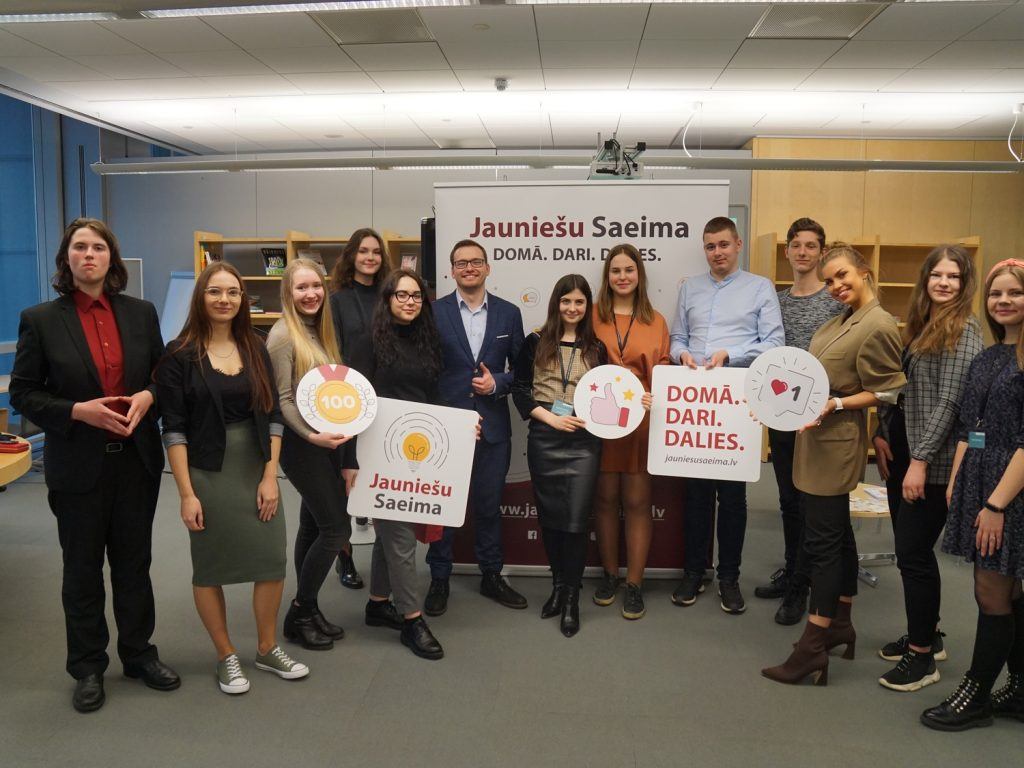
Students participate in Latvia’s annual YouthRecognizing that investing in youth means investing in a better future, OGP participating governments are creating meaningful opportunities for youth to participate in government processes. Technical ... More Parliament program.PHOTO: Credit: Jauniešu Saeima
The Saeima has implemented some innovative programs to make parliament more accessible to citizens. Can you share examples of some of these initiatives and the impact they’ve had on trust between government and citizens?
Our parliament is very open, with regular consultations with NGOs in a special forum each May where we discuss proposals from NGOs. NGOs are frequently invited to provide their expert opinion in meetings of the sitting committees of the Parliament. Each committee has appointed a designated NGO contact person. The Parliament’s communication office has created videos educating the public on the legislative process as well – just a few things the parliament does to become more accessible to the public.
We also have several initiatives to engage young reformers. We have a Youth Parliament program each year, where interested youth run a mini election campaign and the top 100 – the number of parliamentarians in the Saeima – get to sit in the real parliaments seats, elect the parliament chair, work in committees and pass motions. Each February, school children can come and shadow a Member of Parliament for a day. Last year I had two people sharing a day with me. Schools can schedule a visit to the Parliament, where they not only get to see the Parliament, but learn about political processes. We also participate in Germany’s international internship program, where we host a few German interns in the Latvian Parliament while the Germans host the Latvians and students from all over the world. I’d like to see the Latvian Parliament do this more and grow the program. Perhaps we could expand the program with the Baltic Assembly, an inter-parliamentary organization that brings together about sixty parliamentarians from Lithuania, Estonia and Latvia and our partner organisations in the Nordics and Benelux countries.
We will start 2021 by focusing on a public consultation for the draft lobbying transparency principles and will move to the actual draft of the law. There hasn’t been a law on lobbying in the 100 years since Latvia became a country, so it’s a very special time. Moving step by step is important to ensure we get it right.
Featured Photo Credit: Anton Veselov
Inese Voika es miembro del Parlamento de Letonia (Saeima). En esta entrevista, Inese habla sobre el importante papel del parlamento en el gobierno abierto, el progreso de Letonia en la reforma de la transparencia del cabildeo, cómo el parlamento letón está trabajando para ser más accesible a los ciudadanos y más.
¿Por qué crees que es importante que Saeima (el parlamento de Letonia) participe en el proceso de gobierno abierto y en los compromisos de OGP?
Considero que OGP es una de las redes internacionales más dinámicas que trabajan por la buena gobernanza y en contra de la corrupción. He formado parte del movimiento anticorrupción desde hace más de 20 años a través de Transparencia Internacional como presidente de Transparencia Letonia y como miembro del consejo de Transparencia Internacional. Hemos trabajado con la convención de la ONU, la OCDE y otras organizaciones e instrumentos internacionales. Cuando OGP se creó en 2011, ya había mucha energía. Es un club de personas dispuestas a trabajar que está compuesto por gobiernos y organizaciones de la sociedad civil que quieren participar e intercambiar.
En mi trabajo, primero como parte de la sociedad civil y ahora como miembro del parlamento, ha sido claro que las alianzas son fundamentales para lograr que el trabajo funcione. El parlamento forma parte esencial de ese proceso. Empezamos a trabajar con el punto de contacto de OGP – la Cancillería de Letonia – en una ley de transparencia del cabildeo. El sesenta por ciento de las y los parlamentarios que se unieron a la Saiema en 2018 son nuevos miembros del Parlamento, incluida mi facción.
Muchos tienen una gran ventaja en transparencia y buena gobernanza, así que utilizamos este impulso para movilizar al Parlamento para que se involucre.
¿Por qué es tan importante la transparencia del cabildeo, especialmente en este momento? ¿Qué está haciendo Letonia en este tema? ¿Nos podrías contar sobre lo que ha ocurrido recientemente en el liderazgo de Saeima sobre este tema?
La ley de transparencia del cabildeo apunta a una brecha muy clara en nuestra política anticorrupción. Habíamos intentado esto desde el gobierno entre 2008 y 2015, pero no habíamos tenido éxito por varias razones. El momento no era adecuado para esta ley, pero desde entonces aprobamos una ley sobre protección a las denuncias de irregularidades que también era un tema urgente. Estos temas empezaron a madurar en la agenda anticorrupción y gobernanza.
Para la ley que estamos creando ahora, no queremos usar el término “cabildeo”, el cual es considerado en sí mismo una actividad corrupta por muchos miembros de la sociedad de Letonia. En cambio, nos enfocaremos en la transparencia de las actividades de abogacía y de la representación de intereses, lo que amplía el objetivo de la ley y destaca acciones positivas.
Queremos ser muy cuidadosos y evitar crear reglas que restrinjan los esfuerzos actuales de abogacía de Letonia, por ejemplo con procesos demasiado burocráticos, especialmente para organizaciones pequeñas como los grupos que abogan por la salud de los pacientes y otros. Queremos que los procesos que ya están ocurriendo sean mejores: más accesibles y transparentes. Queremos que esta representación de intereses sean una parte fundamental de la democracia de Letonia. Los funcionarios de Letonia ya tienen calendarios abiertos sobre eventos públicos, discursos y reuniones diplomáticas, pero además nos gustaría incorporar las reuniones de representación de intereses para poder monitorear a los funcionarios.
Tenemos varios líderes sobre transparencia del cabildeo en Letonia – incluyendo al fiscal general y al alcalde de Riga – quienes han trabajado en estos desde incluso antes de que la ley se aprobara. Además, estamos organizando una consulta pública para discutir los principios de la ley para poder ser lo más abiertos y transparentes posible. En los 100 años desde que se creó el país de Letonia no ha habido una ley sobre cabildeo, por lo que éste es un momento muy especial. Es muy importante que avancemos paso a paso para asegurarnos de hacer un buen trabajo. Publicamos las actas de nuestro grupo de trabajo, para que la ciudadanía pueda seguir cada paso de nuestra acción.
Como miembros de OGP, creo que la palabra “alianza” nos ayuda mucho a enfocarnos también en alianzas nacionales. Tuvimos una muy buena conversación con nuestro Registro de Empresas, el cual ya tiene más de 10 diferentes registros – incluyendo uno sobre beneficiarios reales que es obligatorio y de carácter público. La directora del registro está muy dispuesta a ayudarnos a simplificar y eficientar el proceso, compartiendo información de registros existentes, para evitar la carga burocrática contra la que nos han advertido muchas asociaciones.
Además, hablaremos con el departamento de informática del gobierno para simplificar e integrar datos en los sitios web de los gobiernos para producir un historial de consultas realizadas sobre alguna legislación o decisión determinada.

Inese meets with Sergejus Muravjovas from TI Lithuania to learn about Lithuania’s work on lobbying transparency reform. / Rīga, Latvia, September 2019.
En el contexto de los planes que Letonia tiene de dar transparencia a los procesos de cabildeo y de la importancia del tema en toda la región, ¿Crees que existan oportunidades para colaborar a nivel regional?
Definitivamente. Creo firmemente en la importancia del aprendizaje mutuo. En Letonia, mucho del trabajo hecho en el tema de gobernanza y anticorrupción ha sido inspirado por prácticas internacionales.
Muchos otros países han trabajado en transparencia del cabildeo y podemos aprender de esta necesidad, de las metodología y de los detalles de la implementación. Hemos notado que los intercambios de experiencias en los que podemos hablar y pensar juntos son los más efectivos para identificar temas y encontrar soluciones.
Por ejemplo, hemos analizado la ley de Irlanda, en donde ha habido un gran apoyo de los grupos que están obligados a registrarse y una fuerte comunicación entre las instituciones en Irlanda sobre la necesidad de la reforma.
De hecho, Letonia tiene un historial de aprendizaje en todos los continentes. Nuestro sistema de supervisión del financiamiento de los partidos políticos, que ahora funciona bastante bien, se creó inspirado en Argentina – un esfuerzo de cooperación de dos capítulos de Transparencia Internacional hace 20 años. Las ONG lograron inspirar al parlamento e involucrar a la Oficina de Anticorrupción recientemente establecida. Entonces sabemos que son las alianzas las que unen conocimiento, energía e impulso.
El Saeima ha implementado programas innovadores para hacer que el parlamento sea más accesible a la ciudadanía. ¿Podrías compartir algunos ejemplos de estas iniciativas y el impacto que han tenido en la confianza entre el gobierno y la ciudadanía?
Nuestro parlamento es muy abierto y constantemente organiza consultas con ONGs en un foro que se reúne cada mayo para discutir propuestas de las ONG. Con frecuencia se invita a las ONG a dar su opinión experta en las reuniones de las comisiones del Parlamento. Cada comité ha designado a una persona de contacto para las ONG, además de reuniones abiertas del comité a las que las ONG están invitadas a participar para compartir sus ideas. La oficina de comunicación del Parlamento ha creado videos para educar al público sobre el proceso legislativo también – estas son solo algunas de las cosas que el parlamento hace ser más accesible al público.
Además tenemos varias iniciativas para involucrar a reformadores jóvenes. Cada año tenemos un programa parlamentario de jóvenes en el que los jóvenes interesados organizan una mini campaña electoral y los que quedan en los primeros 100 lugares – el número de miembros del parlamento en el Saeima – toman los asientos del parlamento, eligen a un presidente, trabajan en comités y presentan mociones. Cada febrero, las y los estudiantes pueden venir y seguir a un miembro del Parlamento durante un día. El año pasado tuve dos personas compartiendo un día conmigo. Las escuelas pueden programar una visita al Parlamento, donde no solo pueden ver el Parlamento, sino también aprender sobre los procesos políticos.
Además, participamos en el programa internacional de liderazgo que organiza Alemania, en el que invitamos a algunos becarios al parlamento de Letonia, mientras que Alemania recibe a las y los letones y estudiantes de todo el mundo.
Me gustaría que el parlamento de Letonia hiciera esto con más frecuencia y seguir creciendo este programa. Quizá podríamos extender el programa a la Asamblea del Báltico, organización interparlamentaria que reúne a cerca de 60 miembros de los parlamentos de Lituania, Estonia y Letonia, así como nuestras organizaciones socias en los países nórdicos y Benelux.
Comenzaremos el 2021 enfocándonos en una consulta pública para el borrador de los principios de transparencia del cabildeo y luego pasaremos al borrador real de la ley. No ha habido una ley sobre el cabildeo en los 100 años desde que Letonia se convirtió en un país independiente, por lo que es un momento muy especial. Movernos poco a poco es importante para asegurarnos de hacer las cosas bien.
No comments yet
Related Content
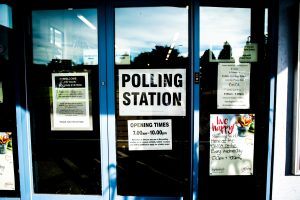
Political Integrity in OGP
Providing for transparency in the funding of campaigns, political parties, and democratic politics is an essential accountability mechanism for democratic government and is a growing focus area in OGP.
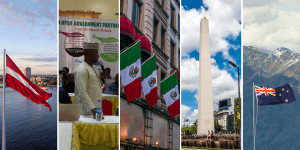
Five Government Innovations Recognized for their Work to Open up Government
Five open government reforms from Latvia, Mexico, New Zealand, the city of Buenos Aires, Argentina and the state of Kaduna, Nigeria have been recognized ...
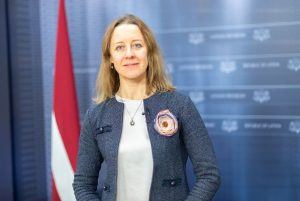 Champions
Champions
Faces of Open Government – Inese Kušķe
Protecting Whistleblowers in Latvia

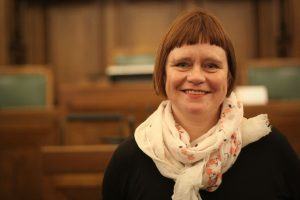
Leave a Reply